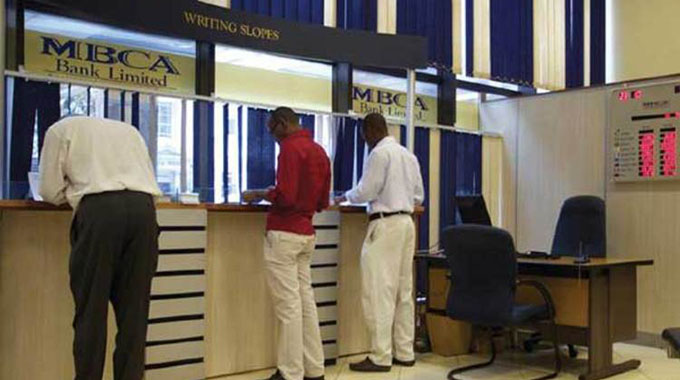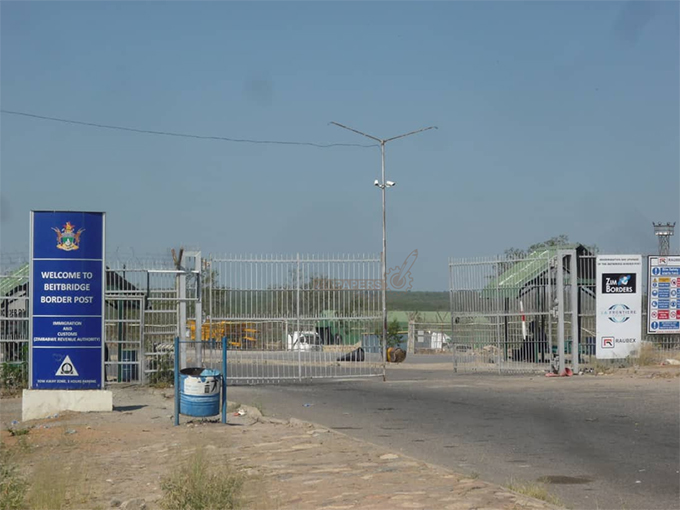Banks to manage $18bn Covid-19 stimulus package

Herald Reporter
Businesses intending to access funds under the Government’s stimulus package to deal with the effects of Covid-19 and the lockdown have to approach their own banks, that will be administering the loan packages under normal banking rules.
The banks in turn are expected to act with due diligence, know their customers, monitor use of the money, ensure loans are repaid and share the risks with the Government that will provide guarantees, the Ministry of Finance and Economic Development has announced.
The involvement of banks is meant to stem possible corruption and inefficiencies.
Productive sectors and the winter wheat programme have already received $2,5 billion under the Covid-19 Pandemic Economic Recovery and Stimulus Package, aimed at reviving the economy that has been adversely affected.
Finance and Economic Development Minister Professor Mthuli Ncube announced a $18,02 billion stimulus package on May 4, and yesterday, came with up the modalities for accessing the facilities.
Productive sectors will access the facility at an interest rate of not more than 20 percent and existing qualifying loans must be restructured to allow businesses to recover.
A grace period of up to three months will be given to allow businesses to effectively recover from the effects of the Covid-19 pandemic and the resulting lockdown.
In a statement yesterday, the Ministry of Finance said: “Implementation of the Economic Recovery and Stimulus Package has already started in earnest with the Reserve Bank of Zimbabwe having already disbursed $2,5 billion for the productive sectors and the winter wheat programme.
“Other than capital grants, which are being disbursed through various line ministries, all productive sector support will be financed by banks through the normal banking channels with Government providing requisite guarantees to the financial institutions based on a risk sharing model.”
The productive sector has facilities such as comprising the Agriculture Sector Support, Working Capital Support, Mining Sector Support and Tourism Support Fund.
The facilities will be accessed through the normal banking channels, and intended beneficiaries are expected to submit requests for funds to their banks.
Through the risk sharing model, banks will conduct credit assessment and due diligence of the applicants, with Government providing bank guarantees.
Banks are expected to monitor and evaluate the use of the resources by borrowers to ensure the beneficiaries will repay the loans accessed.
Government said banks, using the Know-Your-Customer (KYC) principle after conducting due diligence, are supposed to ensure beneficiaries must have a valid tax clearance certificate from Zimra accompanied by record of tax compliance history; and a valid compliance certificate from NSSA.
When disbursing funds under the facilities, priority will be given to existing projects while new projects will be considered in the health sector if they result in the localisation of supply chains in the production of personal protective equipment (PPEs) for the Covid-19 pandemic.
Intended beneficiaries for the Tourism Support Fund must be registered with Zimbabwe Tourism Authority (ZTA). Defaulters and non-performers under previous facilities for real estate, equity and those involved in illegal and speculative activities will not benefit from the facilities.
The Ministry of Finance said the RBZ will accommodate banks with liquidity needs as part of its lender-of-last-resort function. The funds will be released to banks via a reduction on the statutory reserve requirements for banks.
In terms of the $500 million SME Support Fund, Government will capitalise EmpowerBank, Zimbabwe Women’s Microfinance Bank, Small and Medium Enterprises Development Cooperation and Post Office Savings Bank.











Comments